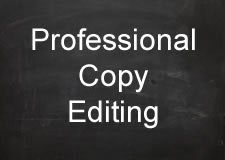We live in a world dominated by best sellers. A new writer can be forgiven for thinking that the mega-success of writers such as Dan Brown, J. K. Rowling and Stephen King represent to norm. The reality is very different, with debut novelists struggling to even get reviews, never mind selling millions of copies.
So, how many books can a new non-best selling novelist really expect to sell?
This is an almost impossible question to answer. It is commonly quoted that the vast majority of books published each year will sell less than 1000 copies. Yet, even this magic 1000/year is a misleading figure. Many of the books that sell sub-1000 come and go with no marketing, no budget and, to be honest, no expectation. So let’s assume your book is published by a publisher with ambition and, you as a writer, have some kind of online presence and intention to sell, then, how many books can you expect to sell?
The answer is… it is impossible to predict. The underlining nature of the publishing world is that best sellers are well… unpredictable. In fact, the only predictable thing about best sellers is that they are few and far between, the reality is that most writers sell a ‘reasonable’ amount of books. Publishers and writers are notoriously cagey when it comes to accurate figures for books sales, but each year we are given an insight into the murky world of book sales thanks to the Man Booker prize. It has become customary to delve into the book sales of the titles on the short list of the prize, prior to the announcement of the winner, and then a comparison in sales can be made before and after the prize has been announced. This year is no different and this table sums up the book sales for the 2010 short list. Using this list we can draw some conclusions for the sales of non-best seller titles.
Four of the six books on the Man Booker prize list stand out as selling less than 6000 copies prior to the announcement.
We can see that:
- Parrot and Olivier in America by Peter Carey sold 5987 in seven months, grossing £87426.
- In a Strange Room by Damon Galgut sold 1210 in five months grossing £15850.
- The Finkler Question by Howard Jacobson sold 3505 in one month grossing £54614.
- C by Tom McCarthy sold 2649 in one month grossing £35073.
The other two titles on the short list Room by Emma Donoghue and The Long Song by Andrea Levy, sold 33923 and 15251 books respectively.
So what does this tell us about expected sales?
I would like to draw two conclusions. The first, you probably already know, and that is that book sales are almost impossible to predict. If you wanted to delve into the background of the best and worst selling titles on the list you would find that they probably had roughly the same marketing budget, reviews and word of mouth. The fact these books are short listed for the Man Booker prize suggests they are both well written and what we would could call ‘good’ novels. The long and short is that the reason for the difference in sales is a mystery. It is a mystery to me, it is a mystery to the author and, most worryingly, it is a mystery to publisher. Publishing is as much an art as a science, and even all these years after the creation of the novel, no publisher would be able to honestly tell you why one novel succeeds and another fails. The industry believes there is no recipe for success and are happy to leave it at that.
The second conclusion is that a novel will probably sell fewer copies than you think. If a novel sells 10,000 copies in a year it is doing well. For a first time novelist, with little track record, a figure of 2000 copies per year is probably closer to the truth. Granted the figures in the post are based on Literary Fiction, a genre that is notoriously difficult to sell. Certain genres will be more popular and sell more books, but what is important for a writer is that they are realistic in their expectations. If you are able to secure a book deal, it is important to talk to your agent/publisher about expected sales, they will have a much clear view of your genre and the industry. Only by establishing a realistic expectation for your book’s sales can you being to determine if your book can be considered a success or failure.

